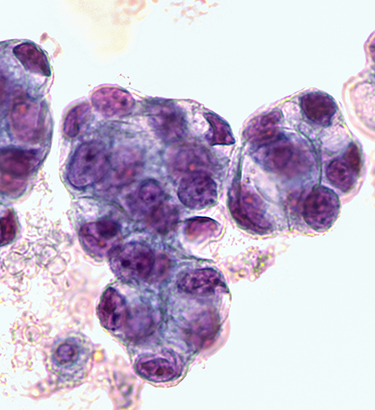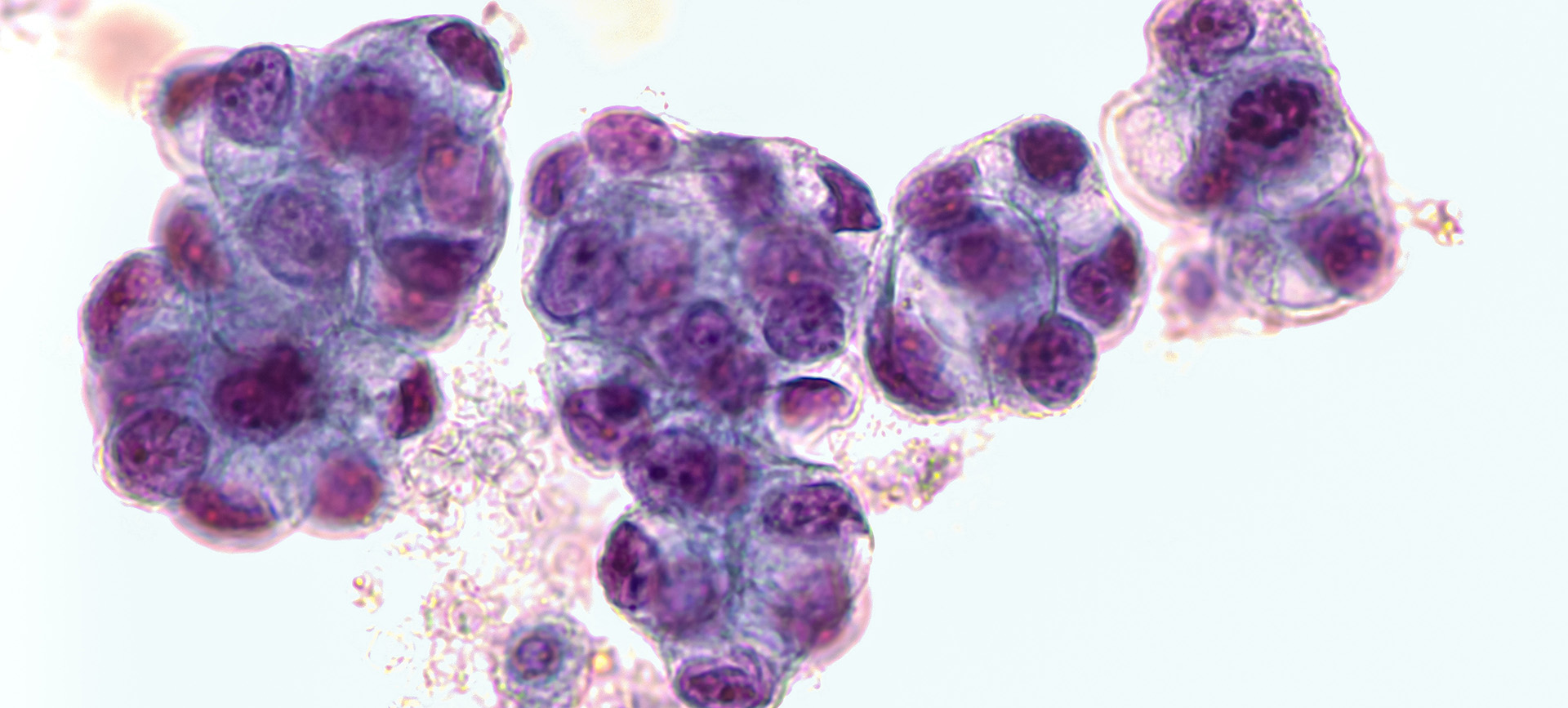When you or a loved one are diagnosed with cancer, you have to learn what seems like a whole dictionary of new terminology. The process can prove confusing and exhausting, but understanding some of these new words, such as biomarker, can be crucial to your treatment journey.


A biomarker is a biological molecule found in blood, other bodily fluids or tissues that is a sign of a normal or abnormal process, or of a condition or disease, according to the National Cancer Institute.
"'Biomarkers' is a broad term with many different potential connotations," said Bhavana Pathak, M.D., a board-certified internist, hematologist and medical oncologist at Memorial Care Cancer Institute at Orange Coast Medical Center in Fountain Valley, California.
"In oncology clinical practice, it is most often used to refer to either a substance that can indicate cancer in the body or a particular feature of cancer that might predict response to treatment or prognosis," she said.
Many different types of biomarkers are used across various cancer specialties, explained Jennifer Linehan, M.D., a urologist and associate professor of urologic oncology at the Saint John's Cancer Institute at Providence Saint John's Health Center in Santa Monica, California.
Biomarkers can be found in the following:
- Urine
- Blood
- Body tissue
- Tumor tissue
- Stool
- Bodily fluids
"Biomarkers are usually proteins," stated Guillermo De Angulo, M.D., a board-certified pediatric oncologist at Nicklaus Children's Hospital and KIDZ Medical Services in Miami. "They are found in the blood and work as a nice metric for clinicians. You can use biomarkers in both diagnosis and treatment of cancer."
However, they are not always proteins, as biomarkers can be other molecules, such as nucleic acids, antibodies, peptides, hormones and more.
"Biomarkers are quantitative data that we use besides just tissue pathology to give us data on how aggressive cancer is or if cancer is present," Linehan said.
The use of biomarkers is not limited to cancer cases, however. Physicians use biomarkers to help treat several other diseases.
"Biomarkers are widely used in providing cancer care," Pathak said. "We often obtain these from the blood, what we call serum biomarkers, or directly from the tumor tissue itself."
Biomarkers can be used to:
- Determine if cancer is present (screening)
- Distinguish benign from malignant cancers
- Distinguish the types of malignancy
- Assess if cancer is responding to therapy
- Determine prognosis
- Check if cancer has returned
- Identify inherited genetic mutations that increase your risk of cancer
"Sometimes they are more sensitive than imaging," De Angulo said, explaining that a biomarker test might be positive for cancer in some cases when nothing shows up on a scan.
"It's a simple, noninvasive procedure, and you can get the results within 24 to 48 hours. So you can catch cancer earlier rather than later," he said.
Biomarkers can also help determine the treatment choice. For example, if you have a tumor removed and the relevant biomarker measure drops, the only treatment you need is the surgery. However, if the biomarker measure remains high or increases, the patient will likely need chemotherapy.
"So, in many cases, biomarkers can help you determine the next course of action," De Angulo said.
Although your oncology team can use cancer biomarkers to predict the aggressiveness of a cancer or your prognosis, one of the most cutting-edge uses of biomarkers is the ability to identify the therapies to which your cancer may respond.
Each patient's cancer has its own unique biomarkers, which can help doctors determine the right treatment. For example, some immunotherapies and targeted therapies might work only for cancer with specific biomarkers. Therefore, biomarkers are a part of personalized (or precision) medicine, a type of medical care that tailors treatment specifically to the molecules, genes and proteins in a patient's body.
However, it's important to understand that biomarkers and precision medicine are not always widely utilized and cannot be used so easily in some types of cancer. Your cancer may not have a biomarker that matches therapies available, or your cancer cells may have different types of biomarkers. Biomarkers can additionally change over time, as well.
"In the pediatric medical world, biomarkers have not progressed treatment that much," De Angulo said. "This is because there are only a handful of tumors that secrete biomarkers in pediatric cancers."
However, he explained, biomarkers have made more of a significant impact in the treatment of cancer in the adult population.
Biomarkers have the potential to personalize disease prevention and management, which can lead to safer, more effective and cost-effective treatments, ultimately resulting in improved health outcomes.
Four key areas of ongoing biomarker research include:
- Liquid biopsies: Identifying cancer cells in the blood. Liquid biopsies can be used to find early-stage cancer, identify whether cancer treatment is working, or determine if cancer has returned post-treatment.
- Immunotherapy response: The ability to determine which people will benefit from specific types of immunotherapies, depending on their biomarkers.
- Pharmacodynamic markers: Monitoring molecular changes in a tumor before and after treatment to establish if a drug is working as predicted.
- Minimal residual disease: Using liquid biopsies to measure residual cancer post-treatment, even if it can't be detected on imaging.
"Where biomarkers have contributed to a significant step forward in the treatment of cancer is in the advancement of liquid biopsies," De Angulo stated.
Liquid biopsies, which are tests done on blood samples, are very much still in their infancy. But they have the potential to improve the cancer-screening process, as well as treatment planning.
So much is still being learned about the body, but its own biological markers provide clues to the process of disease. If you're facing a cancer diagnosis, "biomarker" is an important word to understand.









